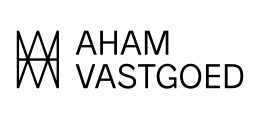Durability. Circular economy. Recycling. Terms that have steadily grown in importance in recent years. We are moving towards a greener world, and organisations can’t afford to be left behind. This also applies to the upcoming introduction of the Digital Product Passport (DDP). In this blog post, we explain what the DPP entails, why the European Union is going to introduce it, and what the consequences will be for you and your organisation.
Look in the mirror at the clothes you put on this morning. Do you know where the materials in your shirt or shoes come from? You may have noticed on the label the country where it was manufactured. But that tells you nothing at all about the origin of all the materials. Or about how and under what conditions the product was made. What’s more, there’s nothing to tell you where you can best recycle the product.
This doesn’t apply just to clothing. It also covers batteries, building materials, toys, electrical devices: and much more besides. All the products we use every day. Products that lack the full transparency which should be there. Not just because consumers are demanding it, or because suppliers are expected to take on this responsibility on behalf of society, but clearly also because laws and regulations are moving in that direction. Policies are being pursued to create a circular economy. In other words, an economy where there is no waste and materials are re-used over and over again. Where waste and residues serve as raw materials for a new product.













